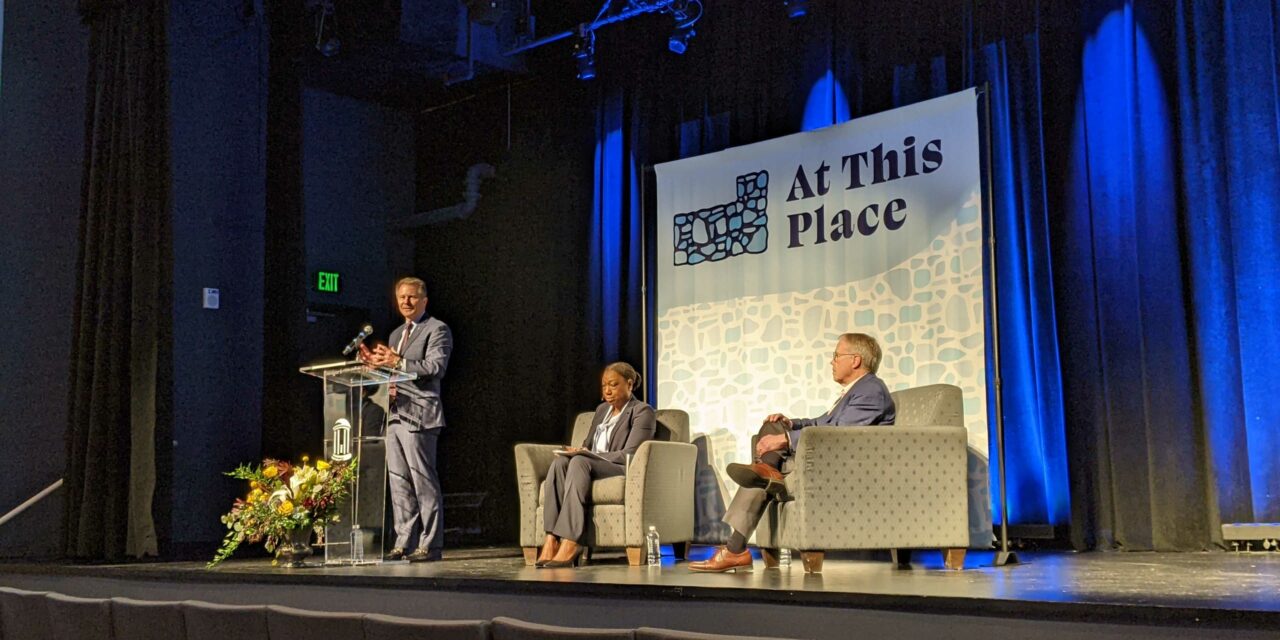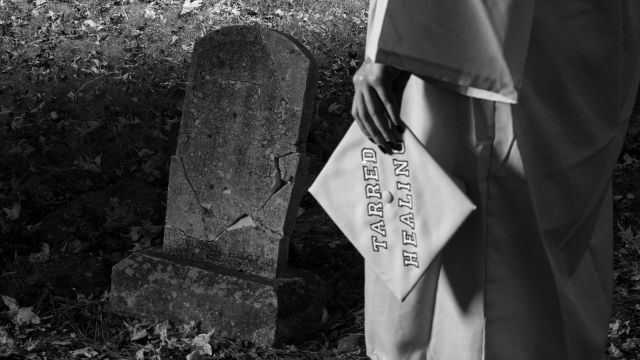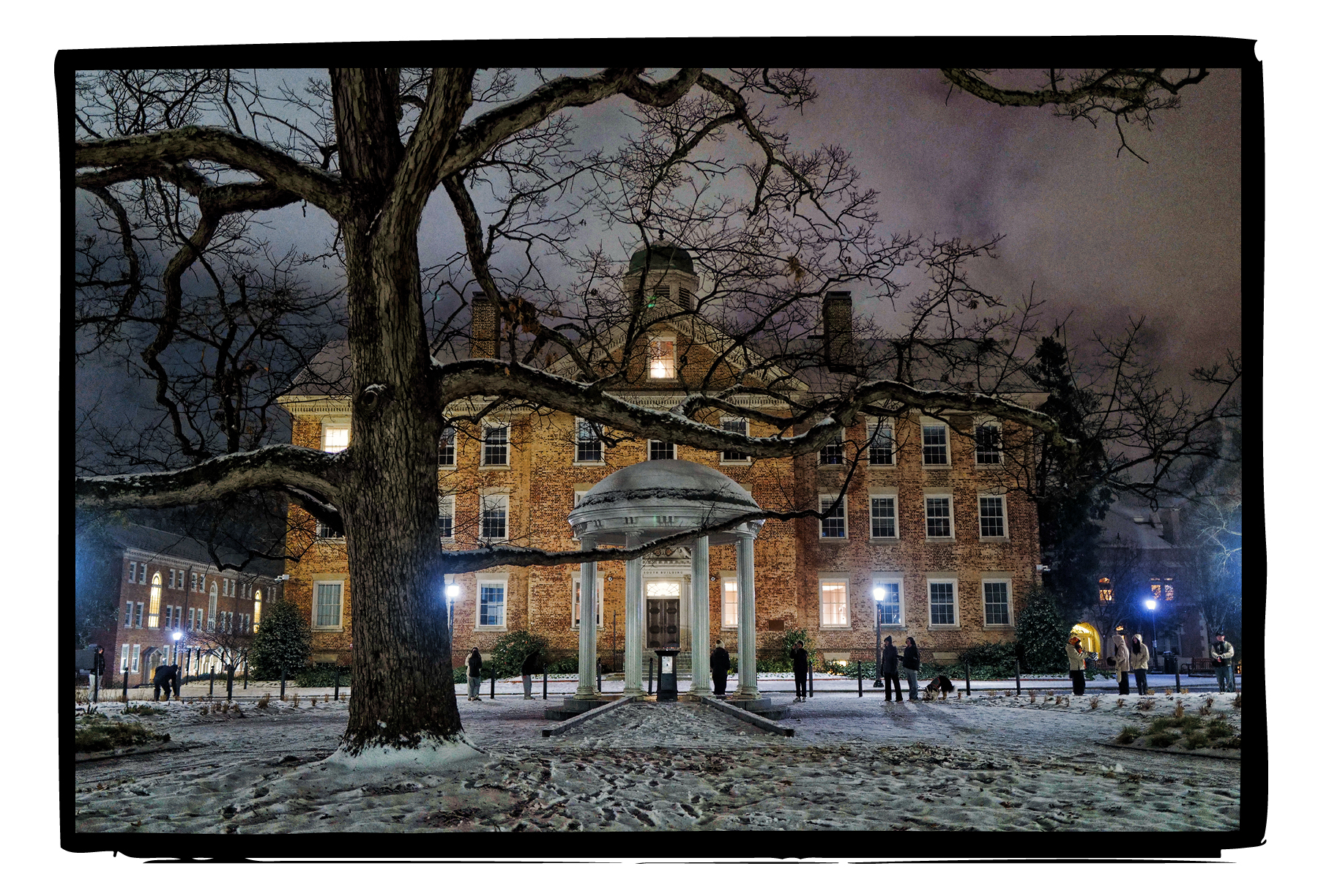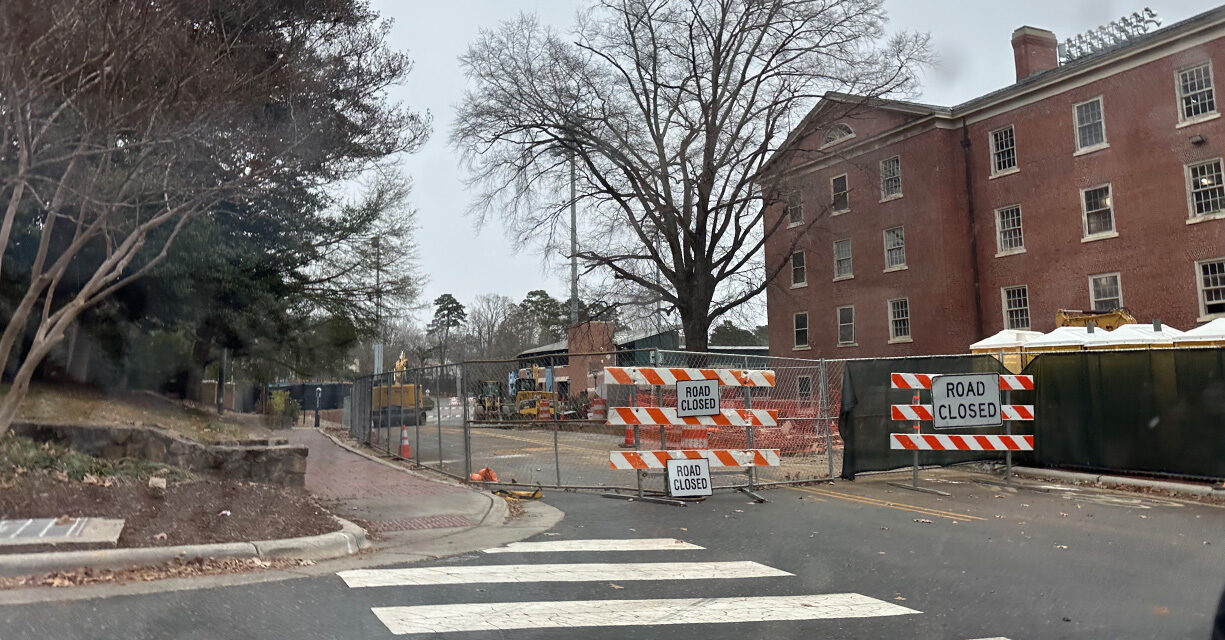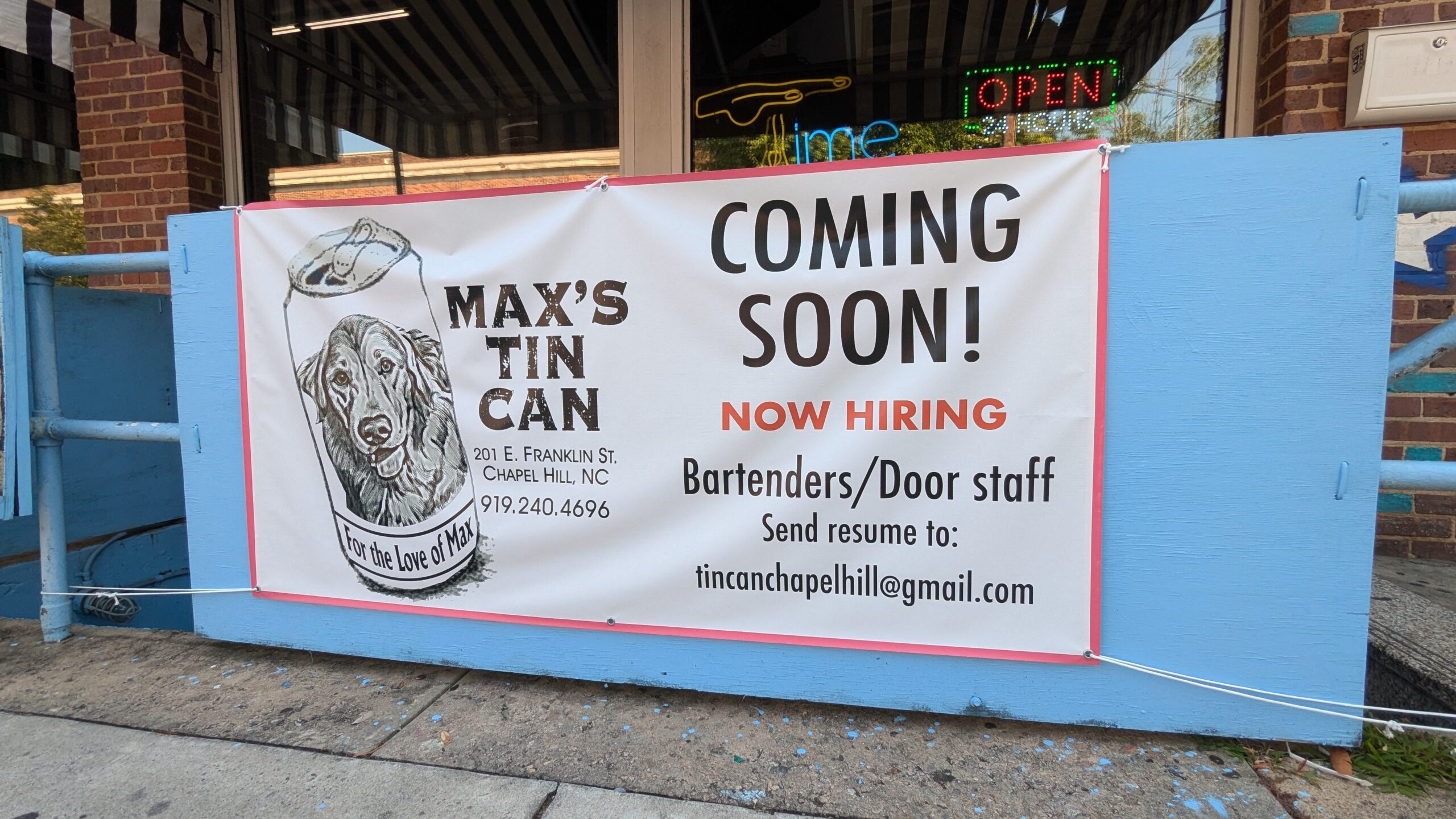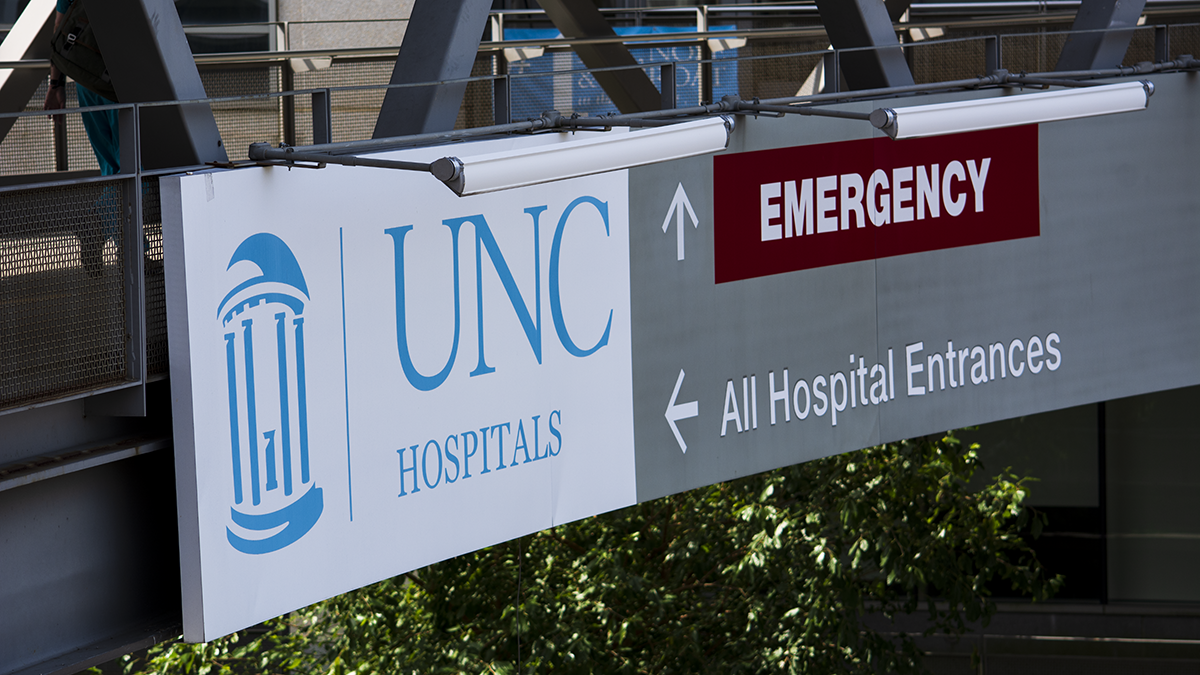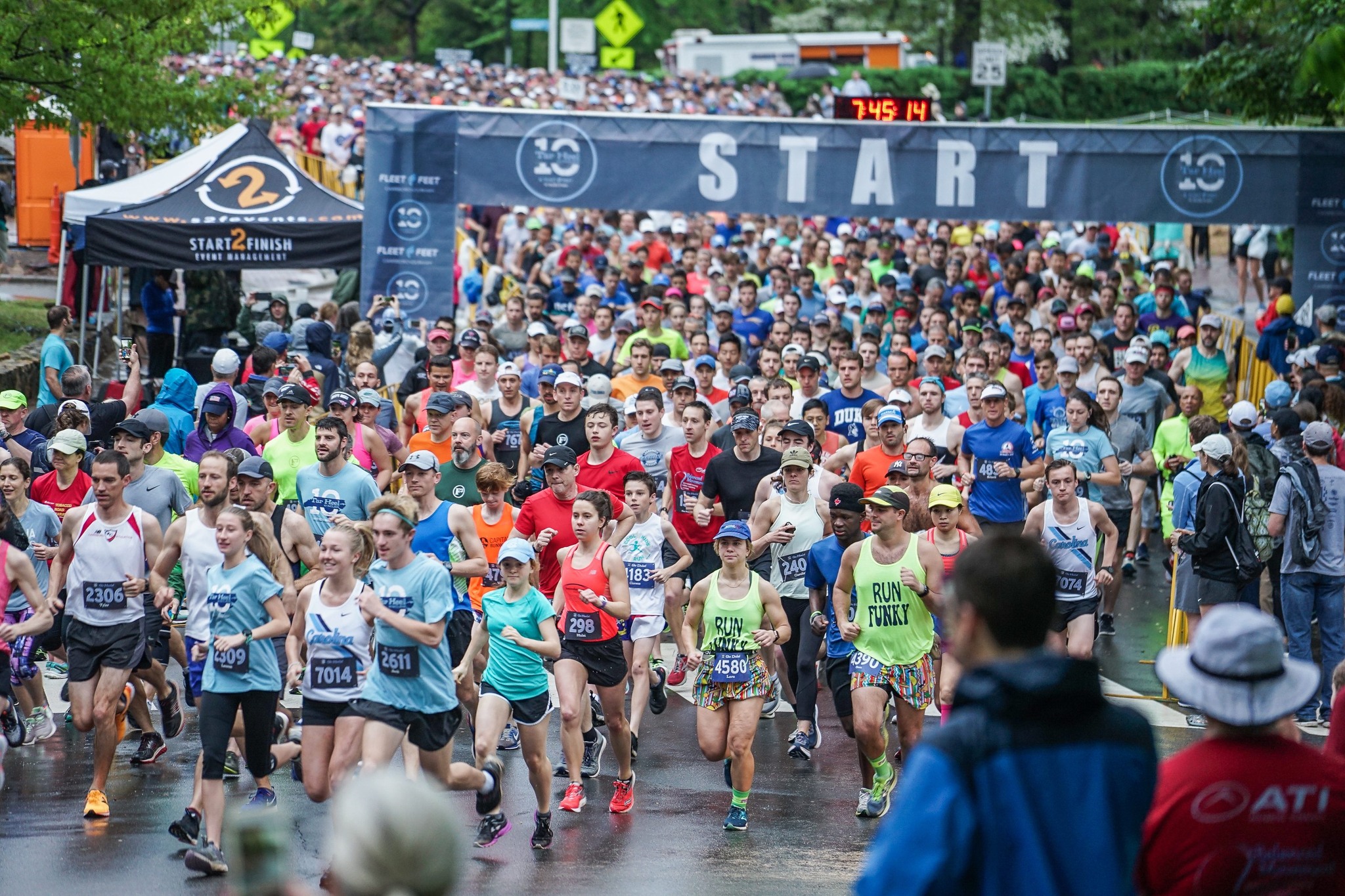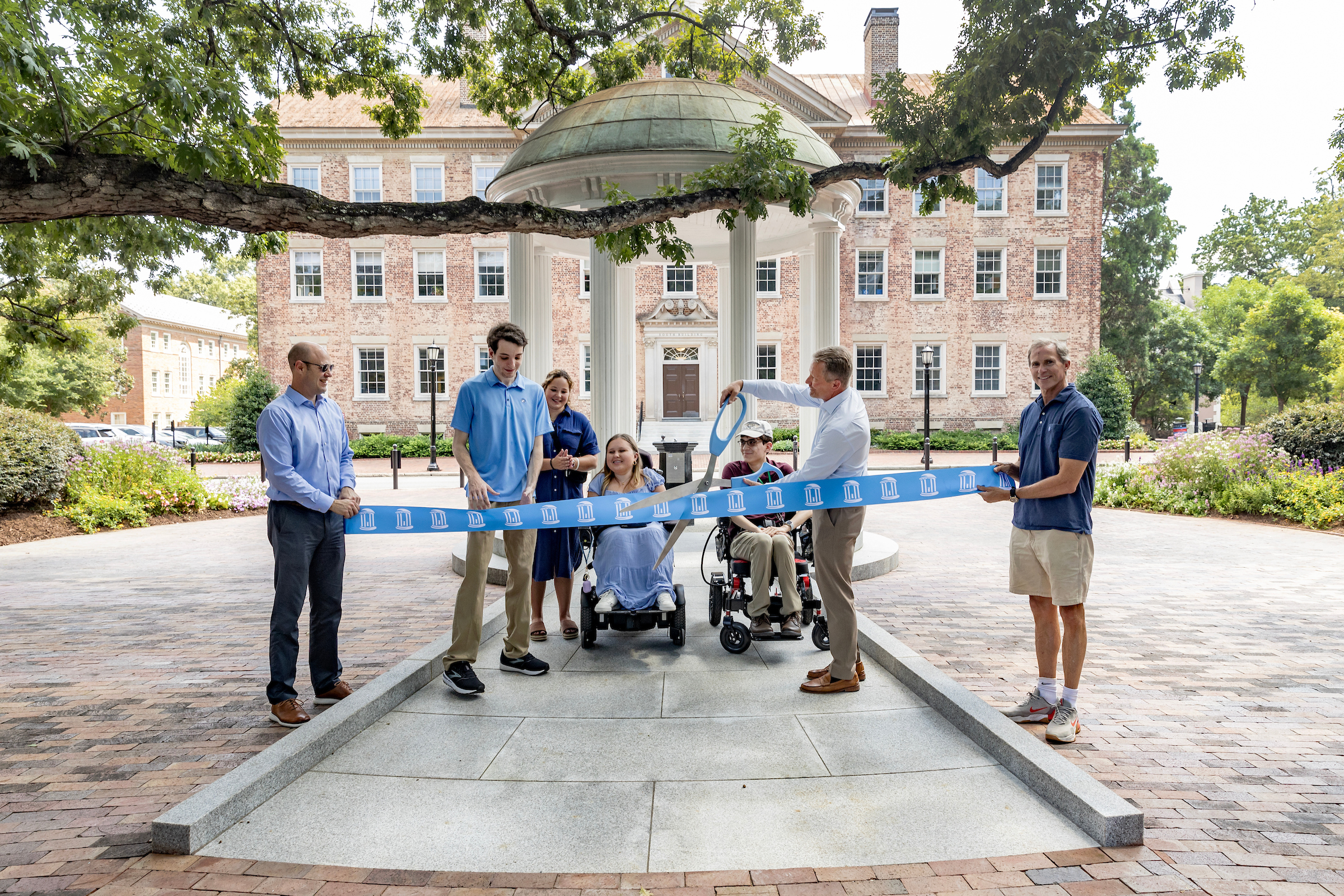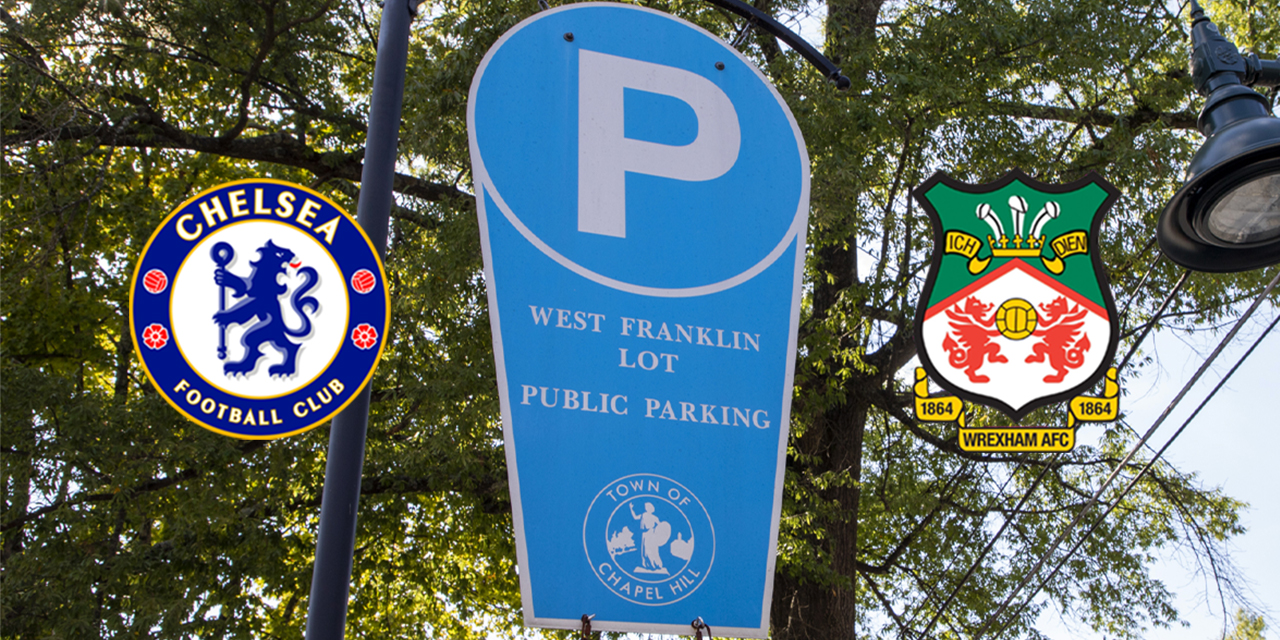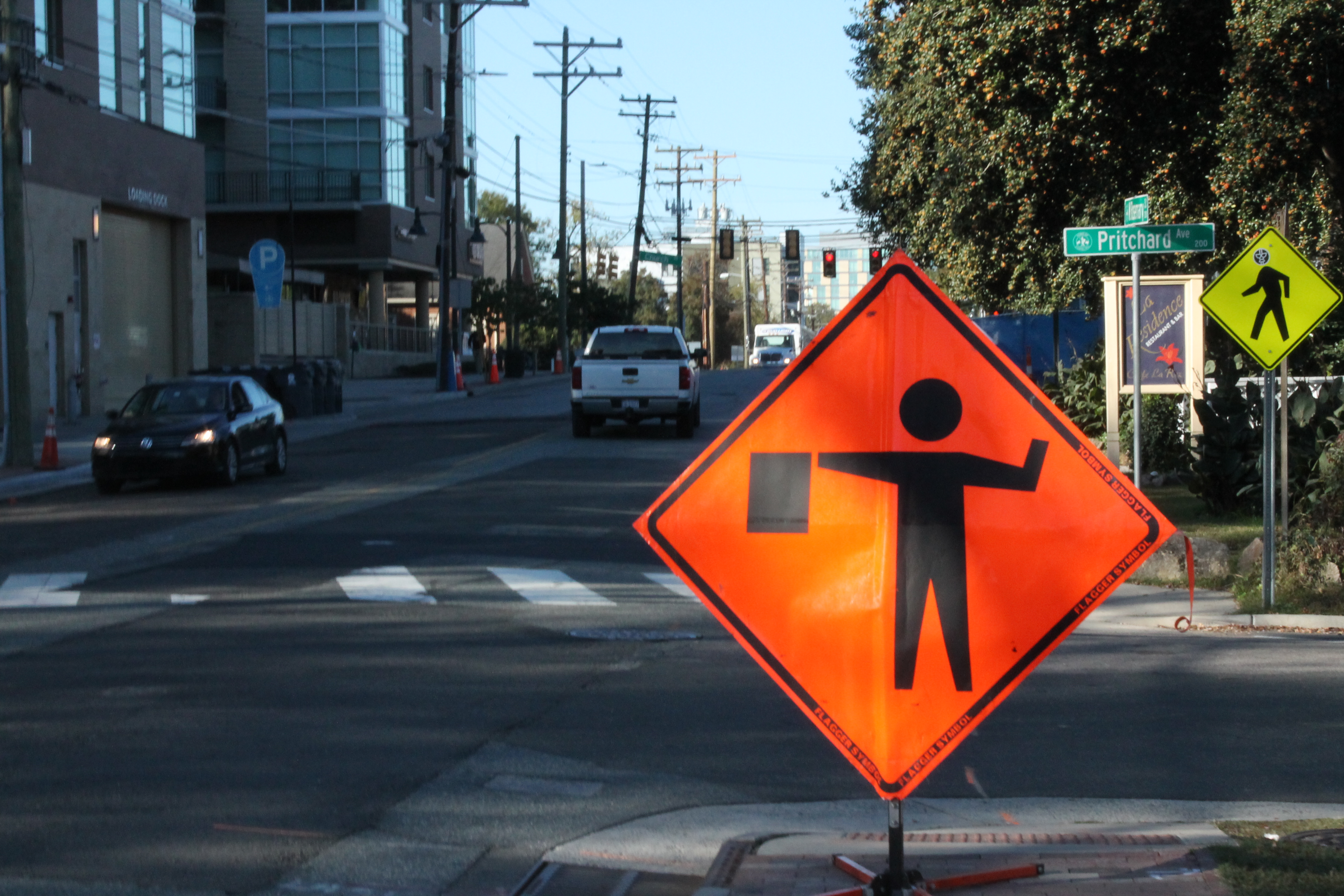It’s spring break for UNC students, so much of the Chapel Hill campus is quiet and empty. But around the student union on Thursday morning, there were dozens of people gathered for breakfast and the opening panel of “At This Place” – which is the latest conference for Universities Studying Slavery. That is a group of more than 90 institutions seeking to address their legacies of racism and sharing the full history of their development, including UNC.
Hosting the conference is UNC’s Commission on History, Race, and A Way Forward – a group of faculty, staff, students, and alumni charged with finding ways to contextualize racial injustice and teach accurate, local history to the campus community.
History professor Jim Leloudis is one of the co-chairs of the commission, who led the opening panel on Thursday and shared details of UNC’s work so far with the audience. He said he hoped the slate of speakers, discussion panels, performances, and tours over Thursday, Friday, and Saturday proves to be helpful for those across the country who are visiting the conference.
“One of the primary purposes [of the event] is for us to learn from one another,” said Leloudis. “To learn best practices, to learn about initiatives that didn’t work out as expected. And I think a lot of people have come here with the view of this university as a leader. The first public university in the United States, we would say the primary institution of pubic higher education in the South – so I think people come here with a real eagerness to learn.”
Leloudis and co-chair Patricia Parker spoke about how the Commission on History, Race and A Way Forward has worked to contextualize UNC’s history since its creation in 2019. The group’s work has resulted in several changes, with perhaps the most visual one being the removal of four buildings’ namesakes due to their ties to white supremacy. Leloudis and Parker also said the commission is digging through university archives to better understand how UNC’s campus earned its wealth – often from buying and selling property that included enslaved people.
But the conference is not just for academics from other communities. The commission made it clear that the discussions held this week are meant to inform and benefit the broader Chapel Hill-Carrboro community too. UNC alumni, former faculty and long-time residents sat in the crowd for Thursday’s initial panel, chiming in with questions and their perspectives.
Danita Mason-Hogans and Delores Bailey are two of the local historians on the Commission who also helped organize the conference. The pair have worked to ensure the perspectives of residents descended from enslaved or minority staffers for the university were equally included in discussion.
In an interview ahead of the At This Place gathering, Mason-Hogans said there are many Chapel Hill residents who feel disrespected by the university because all of its accomplishments as an institution are thanks to the labor of their uncredited ancestors.
“Not to acknowledge that is to present an incomplete picture of the origins of the universities,” said Mason-Hogans. “And to treat it as an aside, as opposed to foundational – I think that really does a disservice to academic and historical pursuit as well.”
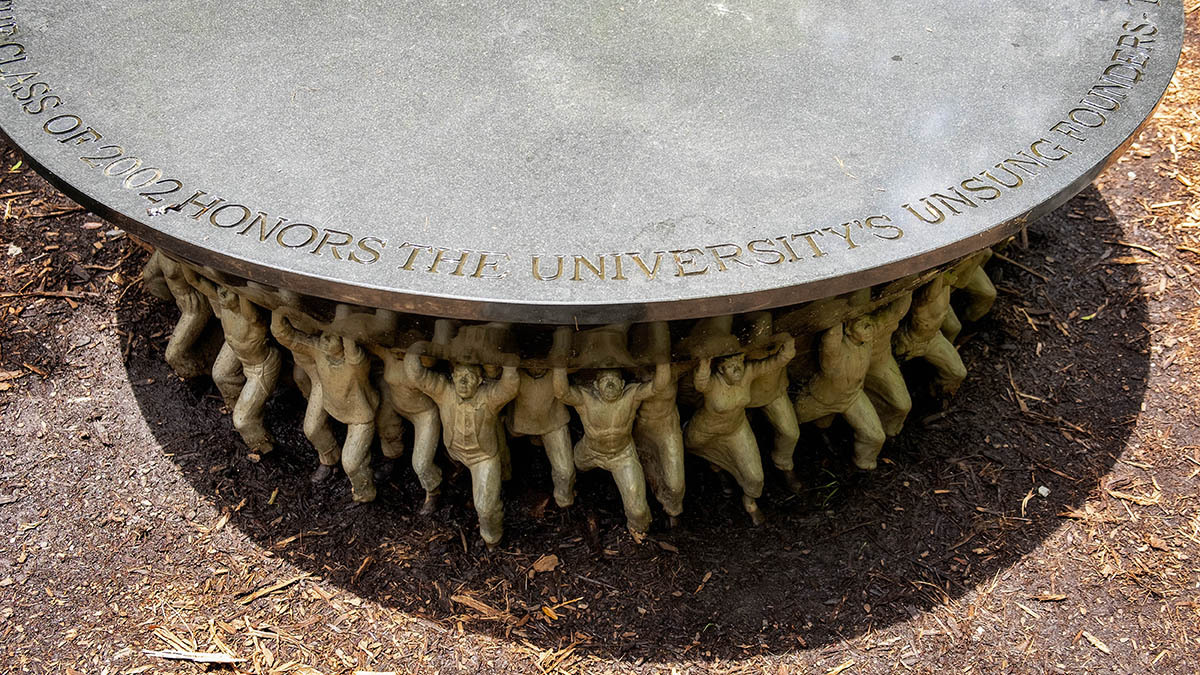
The Unsung Founders Memorial at McCorkle Place was made by the UNC Class of 2002 and is meant to honor the men and women who’s labor built the university. But as Patricia Parker pointed out at the “At This Place” conference, there are several community members advocating for a different presentation of that history. (Photo via UNC)
Many people among the UNC community agree with that assessment – including Chancellor Kevin Guskiewicz. As he opened Thursday’s panel at the Universities Studying Slavery conference, he said it’s the reason why he charged the commission to dive into UNC’s history.
“An honest rendering of our past should not be divisive or controversial,” said Guskiewicz, “but seen as a core part of our mission as universities to seek truth and bring knowledge to light. It is fundamental to who we are and, as [co-chair] Parker has often said, it’s necessary work.”
Thursday’s discussion, however, revealed how it’s not generational trauma that universities must reckon with, but also recent racial trauma. Some Black alumni in attendance talked about their experiences walking by the Confederate monument Silent Sam during their time at UNC and how uncomfortable it made them – including Hilary Green, who earned her PhD. at Carolina and now teaches at Davidson College.
“That pain is felt,” Green said, “and I know it guides my work, but also guides my skepticism at times with an institution that inflicted on me [despite being] a proud Tar Heel. So, how do we move forward to talk about this recent past?”
Parker responded by saying it’s not quite clear, but that events like “At This Place” are meant to gather perspectives and seek that very solution.
“We’re here having this conversation,” she said, “and I hope you find it healing in some ways – to know you have that pain and now this commission is leading the way [to create] a space to reconcile with [it]. We want to hear from you what that looks like beyond a panel at a conference.”
That reconciliation is also sought by long-time Black Chapel Hill residents and descendants of those who built the university, said Bailey. But she and others expressed their concern that such discussions may ultimately fall on deaf ears of UNC’s top decision-makers.
“All of the people [on] the commission absolutely got it,” said Bailey. “But I’m concerned about the larger university community. It does not exist in solitude. It is not a silo. There are some people out there on Graham Street, on McMaster Street, that help build this university. And except for conversations like this, it feels like they’re completely ignored.”
“So,” she added, “the importance of this commission, and the importance of this conference, is [to remind UNC] of those loving arms that wrap around the university, that come from outside the university walls.”
Registration for “At This Place” on UNC’s campus is free and open to anyone, with panels continuing through Friday night.
Chapelboro.com does not charge subscription fees, and you can directly support our efforts in local journalism here. Want more of what you see on Chapelboro? Let us bring free local news and community information to you by signing up for our biweekly newsletter.

